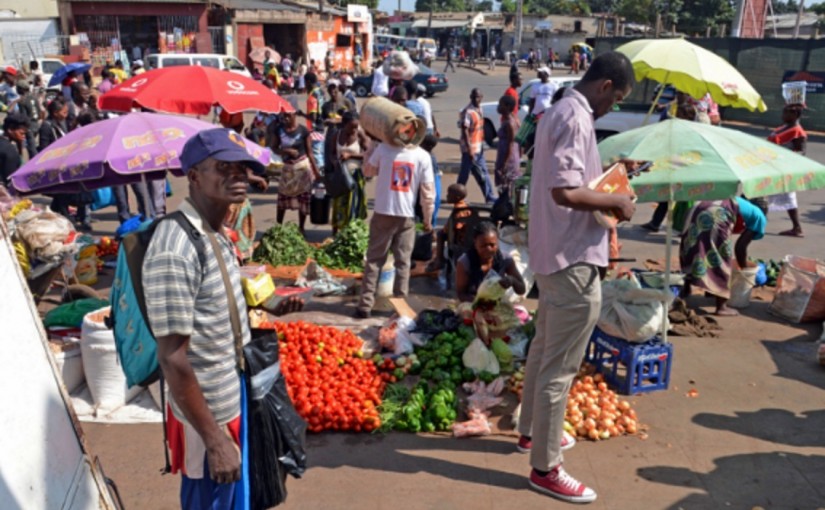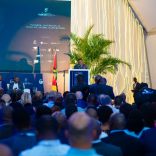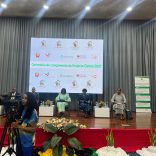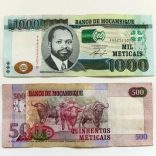Central bank sees Mozambique recovering from unrest with moderate growth
Price of raw materials no longer an excuse for crisis in Mozambique – Deputy Minister

File photo
The Deputy Minister of Industry and Trade of Mozambique yesterday said that the crisis in the country was structural and that the international price of raw materials was no longer any excuse for the country’s gross domestic product growing below estimates.
Speaking in Maputo at a conference hosted by Exame magazine and Barclays Bank, Ragendra de Sousa said that the country’s problem had structural causes, now aggravated by the debt crisis, and that the international price of the raw materials exported by Mozambique were recovering, concluding: “It’s no longer any excuse.”
According to the deputy minister, the price of coal has doubled, the price of cashew has risen and that of sugar stabilised, removing raw material prices as a factor in the crisis. Ragendra said that the country should focus on restructuring productive sectors and “debureaucratizing minds”.
Ragendra de Sousa, one of the most respected Mozambican economists, argued that previous forecasts of double-digit gross domestic product (GDP) growth had “collectively anesthetized” the country, which “is now being awakened to the fragility of the economy”. He forecast growth at possibly no more that 3.2 percent in 2016, below the 3.7 percent projected by the government.
The strategy is “obvious,” he said, in a country where agriculture occupies 70 percent of the population representing a quarter of GDP “and can produce wealth and business”, and with much potential in tourism still to be explored.
Ragendra de Sousa also pointed to structural causes for Mozambique’s fall to 137th place in the World Bank’s business environment ranking.
“In the past an ideology of command and control was created and this way of thinking remains,” Ragendra de Sousa observed, referring to the continuation of a ‘one-man show’ mentality, of ‘the one who likes to command.’ in a model of “closed minds’ which urgently needs to be changed.
The government, he said, was working to improve the business environment, but “the problem is with the agents involved – with the state, which retains a bureaucratic mind-set, and in the private sector and civil society as well”.
Regarding the business environment, Luísa Diogo, a speaker at the same conference, mentioned “a mixture of bureaucracy and corruption” that she saw more clearly after she moved to the private sector.
“It is very difficult,” said the current chairman of Barclays Moçambique’s board of directors, adding that if she had had been in the private sector in another incarnation before she went into government, she would have”done much more” for the business environment in Mozambique.
Luisa Diogo, the prime minister between 2004 and 2010, pointed out that the country had benefited for some time from the peace dividend and a period of reforms, noting that, at this stage, “the restructuring of the economic base, with structural projects to make growth more sustainable and not just on the basis of ad hoc income” should by now be in full force.
Like Ragendra de Sousa, the Barclays leader points to agriculture as the way forward, but that requires peace and macroeconomic stability and “both are under stress”.
In addition to military instability and the economic crisis, marked by a sharp devaluation of the metical and rising cost of living, Mozambique has admitted its inability to repay the large loans it secured for state-owned enterprises between 2013 and 2014, triggering a public debt crisis and cutting off a substantial part of external aid.
“When we talk about the government having US$700 million a year in debt service charges, it’s a much worse situation than what we’ve been going through before,” said the former prime minister, who, not knowing when the country will emerge from the crisis, returned to the question of who makes the economy.
“I am not able to look at a system detached from the situation of companies, because they are the ones who determine the health of the financial system,” she said.
Yesterday’s conference, entitled “Economic Partnerships”, was the first of a cycle promoted by Exame magazine and Barclays Mozambique.












Leave a Reply
Be the First to Comment!
You must be logged in to post a comment.
You must be logged in to post a comment.